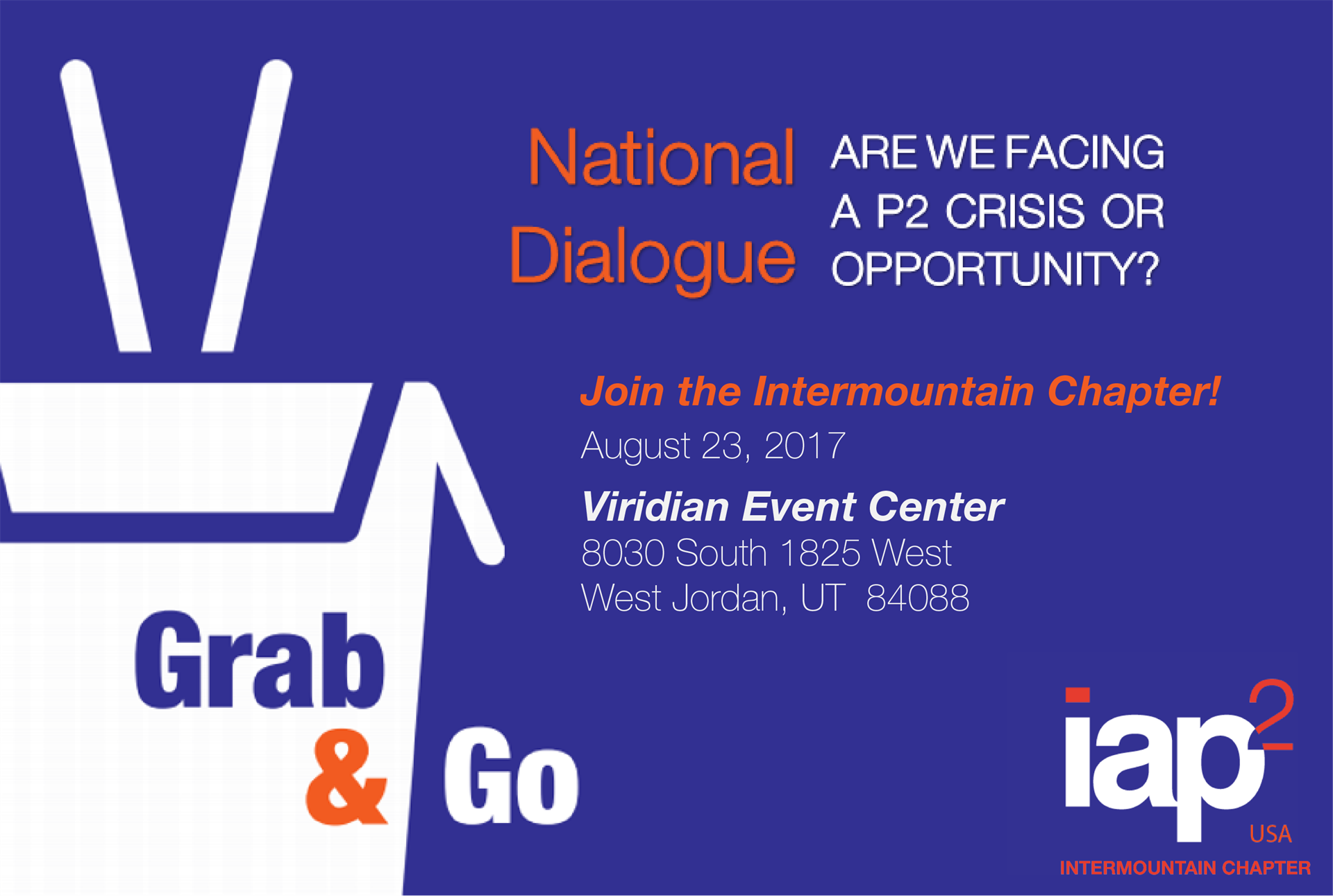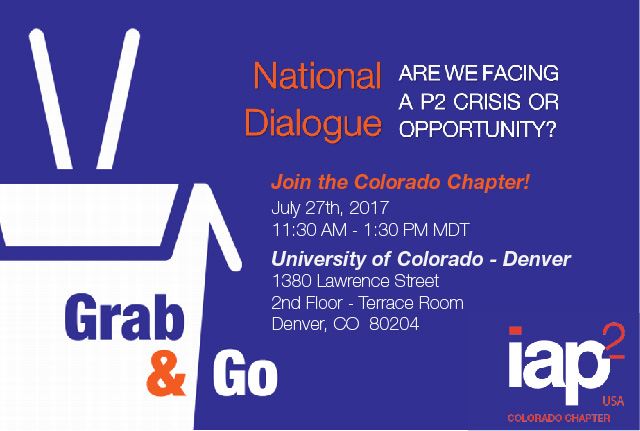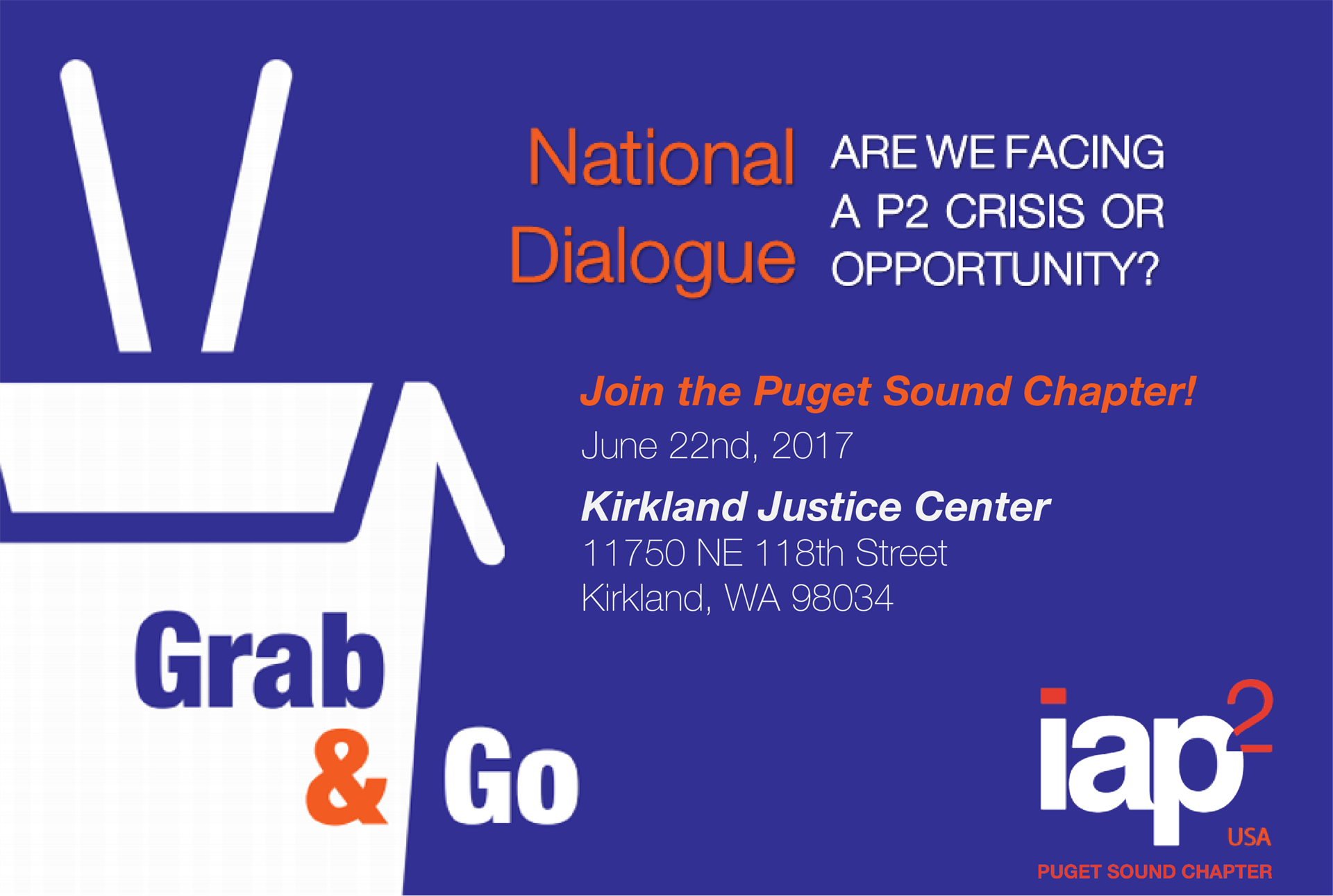|
Bringing the conversation to a community near you!
In 2016, the political climate in the U.S. has shone a light on the deep divides that seem to have created an "unbreachable gap between Americans". The "difficult situation" provided a rare and crucial opportunity to showcase public participation’s role in bringing people together.
Like many things in P2, the National Dialogue came from humble beginnings. In February 2017, the conversation kicked off in San Diego, California during the Skills Symposium. Practitioners from across the United States gathered together at a social to confront a question that had been brought to the forefront after the turbulent 2016 Presidential Elections: "Are we facing a P2 crisis or opportunity?" This question hit a chord deep within many in attendance, and the subsequent conversations made it clear that it was something be explored. Thus, the first National Dialogue came to be.
National Dialogue: Are we facing a P2 Crisis or Opportunity?

| 
| 
|
September 7 – 8, 2017, Denver, Colorado
Leah Jaramillo, IAP2 USA chair, introduced the Pathways session and provided history and context for the Pathway. This Pathways session was a follow-on to National Dialogues that had already taken place in several locations across the west. (See for summaries of dialogs) The dialogs were designed to be reproducible and focused, by way of a modified World Café discussion, on three key questions:
- We hear a constant message that we are a divided country. What are the challenges to our work?
- How are those challenges affecting the spirit of public participation?
- What might we do as individuals and organizations to support quality P2 in our communities and nation?
Leah noted the Pathways session had the objective of reviewing the results of previous dialogues and determining how IAP2 USA could build on the results (and the passion) that came out of the discussions and move forward with actions based on those results.
For the first hour of the session, Penny Mabie, Puget Sound Chapter, conducted the dialogues, with three small groups as the basis of the World Café. After each discussion round, Penny asked each table group to note their collective responses and identify three key themes. As a result, the dialog ended up with a collection of key themes in response to each of the questions. Participants then compared their session’s outcomes to the themes identified at all the other National Dialogs. After much discussion, a combined list of key responses was compiled.
|
Consistent with reports from the other National Dialogues, there was general agreement that the current feeling of polarization in the country is providing many challenges to public participation (P2) practitioners’ work. Identified challenges included:
|
For the second question, regarding challenges, the group organized responses into several categories that seemed to reflect the greater thinking.
|
The Pathways participants regained some positive energy as they discussed the third question and all the potential actions that could address the challenges presented by the current state of dialogues and civic engagement in the U.S.
During the discussion, the question was asked whether these results were reflective of how things stood in other parts of the world. Australasian, Canadian and African participants all concurred that many of the attitudes and emotions and challenges applied to their geographies and political contexts as well.
The participants developed the following list of what they thought were the most promising actions that could be undertaken to help P2 practitioners engage their communities. Some actions were identified as those individuals (participants) could take, some were suggested for practitioners, some for decision-makers, and some were for IAP2 USA to undertake.
| Actions | Participants | Practitioners |
Decision-makers | IAP2 USA |
|
| Deliberately expand your views | ✗ | ✗ | ✗ | ✗ | |
| Listen without distraction | ✗ | ✗ | ✗ | ||
| Create safe spaces and maintain them |
✗ (maintain) |
✗ (create) |
|||
| Help decision-makers to develop P2 processes / opportunities | ✗ | ||||
| Engage through activities (P2 as experience, not being talked at) | ✗ | ||||
| Advocate for good P2 (3 pillars) | ✗ | ||||
| Educate the public on why and how to engage | ✗ | ✗ |
✗ |
||
| Demonstrate civility, vulnerability & curiosity | ✗ | ||||
| Consider diversifying tools, doing things differently in light of this context | ✗ | ✗ | |||
| Start P2 process early | ✗ | ✗ | |||
| Build a business case for P2 (Research & Return on Investment data) | ✗ | ||||
| Include more study of fear, emotion, anger impacts on P2 | ✗ | ||||
| Develop strategies and processes to motivate the middle | ✗ | ✗ |
Pathways participants were eager to see these actions put into play. Leah Jaramillo, IAP2 USA chair, agreed to take the lead on next steps. Penny Mabie put together a brief Powerpoint to present the Pathways outcomes to the rest of the IAP2 North American Conference attendees at a closing plenary. Leah will put out a call for volunteers and help organize efforts moving forward. Leah will also brief the IAP2 USA Board of Directors on the outcomes.
Get the conversation started in your area!To facilitate a national dialogue, IAP2 USA has created a guide to help IAP2 chapters, members and friends host their own conversations in their own communities. This guide provides an event schedule and agenda, a review of the techniques used, and templates for everything from the invitation to event reporting. We will report back on what we have heard from around the country at our IAP2 North American Conference in Denver.
|
Inside P2 Interviews President Jaramillo
| Watch the Introductory Webinar! |
Resources: Take some, leave some.
NOTE: You must be logged in to add resources, or comment on posts.
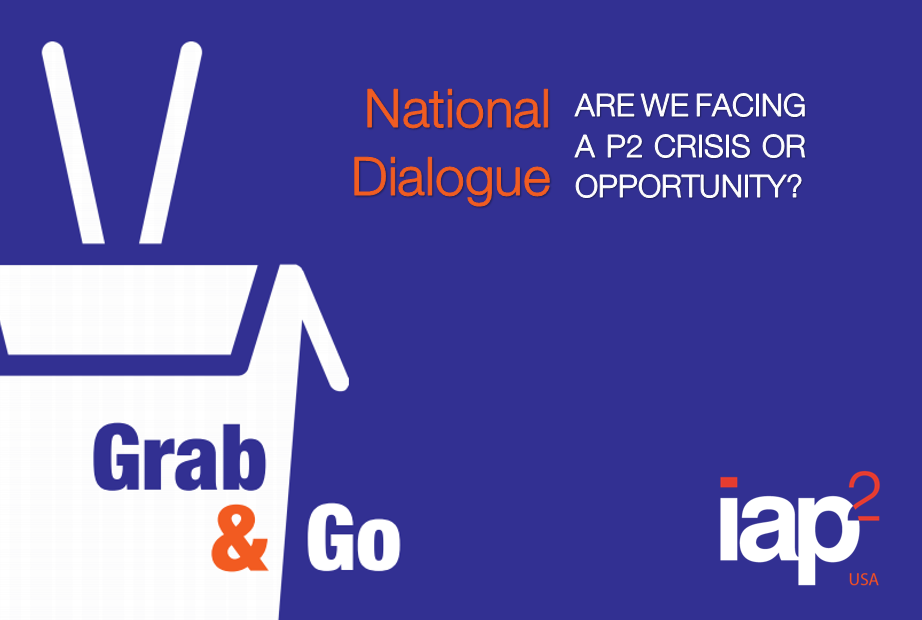

 Check out Inside P2's interview of IAP2 USA President Leah Jaramillo as they talk about the IAP2’s National Dialogue initiative, its focus and objectives, its origins, where it will happen and its culmination at the IAP2 North American Conference in September!
Check out Inside P2's interview of IAP2 USA President Leah Jaramillo as they talk about the IAP2’s National Dialogue initiative, its focus and objectives, its origins, where it will happen and its culmination at the IAP2 North American Conference in September! 